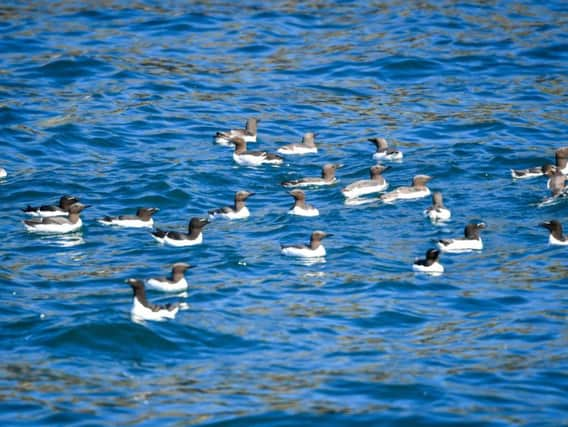Scotland's west coast named UK's first Hope Spot for rich marine life


The Argyll Coast has been declared the first Hope Spot in the UK by international charity Mission Blue.
The area, stretching from Loch Sunart past the Isle of Mull to the Sound of Jura and Knapdale, is home to a rich ecosystem of corals, seagrasses, fish and marine animals.
Advertisement
Hide AdAdvertisement
Hide AdImportant sites around the globe have been adopted as Hope Spots in a bid to raise awareness and put pressure on world leaders to protect the marine environment.
The recognition means the sea lochs, deep-water sounds, peninsulas and islands of the Argyll coast are ranked alongside areas such as the Gulf of California, the Sydney coast and the Coral Sea in the South Pacific.
It was recommended for the designation by four local groups.
Oceanographer Dr Sylvia Earle, founder of Mission Blue, said: "The Argyll coast is a place of great beauty, but also of great importance.
"It's home to not only great people, with a love and appreciation for the sea, but of such a wonderful mix of creatures,from dolphins, whales and seals to otters and birds.
"Congratulations on the first Hope Spot in Scotland and mainland United Kingdom."
The Argyll coast comprises four statutory Marine Protected Areas and is one of the most bio-diverse areas across Scotland's waters.
Home to native oysters, flame shell mussels, meadows of seagrass and vast colonies of seabirds, it also plays host to harbour porpoises, minke whales and other cetaceans.
Advertisement
Hide AdAdvertisement
Hide AdThe area shelters one of Scotland's rarest animals - the 3m-long flapper skate - said to be at greater risk of extinction than the giant panda.
But few Scots have ever heard of the fish.
John Aitchison, of the Friends of Jura Sound, said becoming a Hope Spot was a good way to raise the profile of the area across the globe.
He said: "There are so many communities along the coast whose livelihoods and enjoyment depend on the sea being healthy.
"We hope that its designation as Scotland's first Hope Spot will encourage more people to get involved and to appreciate the life below the surface that is right on their doorsteps.
"This is a community-led initiative, so the four coastal community groups that proposed the Argyll coast and islands area are delighted that this area has become the first Mission Blue Hope Spot in Scotland and the mainland UK.
"The groups all belong to Scotland's Coastal Communities Network.
"The UN's latest biodiversity report tells us that a million species, one in eight, face extinction within decades due to human activity.
"Hope Spots celebrate and recognise the global importance of their marine biodiversity and aim to encourage people living in and alongside them to cherish, protect and restore it.
Advertisement
Hide AdAdvertisement
Hide Ad"In Scotland, the Argyll coast and islands Hope Spot has greater marine biodiversity than anywhere besides St Kilda."
Parts of the seabed have rocky reefs, covered in soft corals, feather stars and northern sea fans.
The complex habitats provide vital nurseries for other animals, including commercially valuable fish and crustaceans, which are especially vulnerable to pollution from fish farms and the illegal dredging for scallops.
Annabel Lawrence, of the Community Association of Lochs and Sounds, said: "We want to encourage our coastal communities to be more engaged and aware of what is happening just off their shores.
"The more people get to know and understand the wonders of this marine ecosystem, the more likely they will care about how it is looked after and what factors can impact upon the success of future protection and restoration of this unique and finite resource.
"Throughout history, coastal communities have been at the forefront of adaption and innovation.
"The community groups that have come together and immersed themselves in the conservation of the west coast of Scotland's marine ecosystems are proof that we can make a difference in local communities which create ripples across the world."
"Taking care of the local marine environment will ensure the sustainable future of the ocean, and the right framework is in place to make it happen. We just have to take the plunge."
